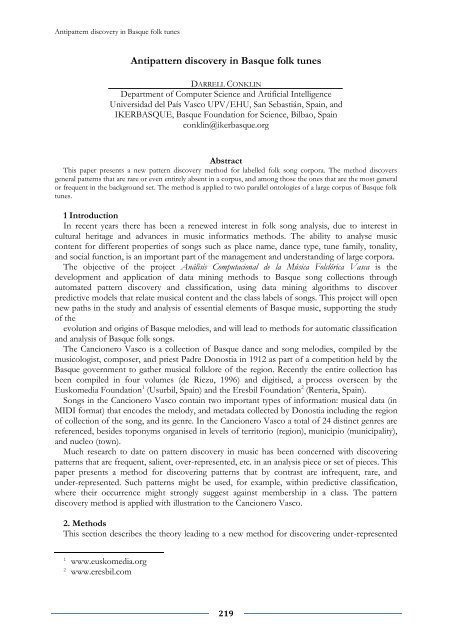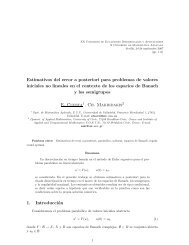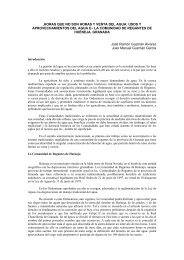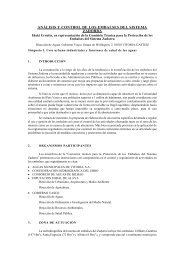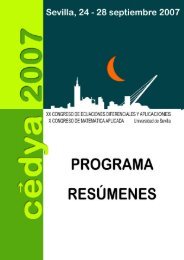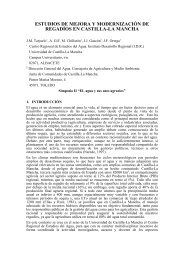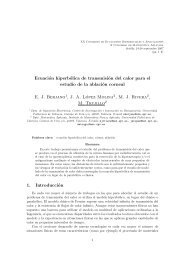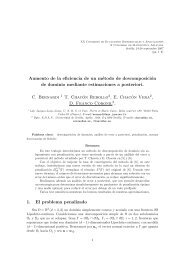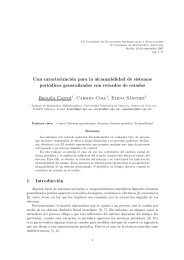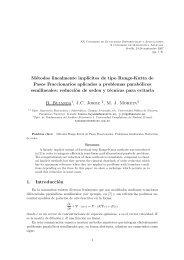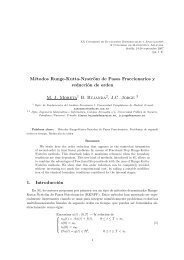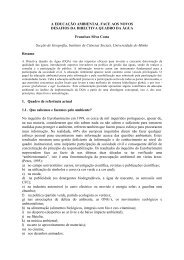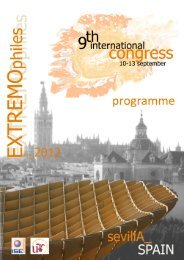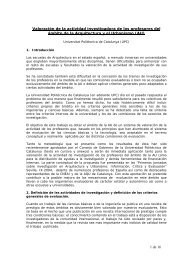LIBRO DE ACTAS (pdf) - Universidad de Sevilla
LIBRO DE ACTAS (pdf) - Universidad de Sevilla
LIBRO DE ACTAS (pdf) - Universidad de Sevilla
Create successful ePaper yourself
Turn your PDF publications into a flip-book with our unique Google optimized e-Paper software.
Antipattern discovery in Basque folk tunes<br />
Antipattern discovery in Basque folk tunes<br />
DARRELL CONKLIN<br />
Department of Computer Science and Artificial Intelligence<br />
<strong>Universidad</strong> <strong>de</strong>l País Vasco UPV/EHU, San Sebastián, Spain, and<br />
IKERBASQUE, Basque Foundation for Science, Bilbao, Spain<br />
conklin@ikerbasque.org<br />
Abstract<br />
This paper presents a new pattern discovery method for labelled folk song corpora. The method discovers<br />
general patterns that are rare or even entirely absent in a corpus, and among those the ones that are the most general<br />
or frequent in the background set. The method is applied to two parallel ontologies of a large corpus of Basque folk<br />
tunes.<br />
1 Introduction<br />
In recent years there has been a renewed interest in folk song analysis, due to interest in<br />
cultural heritage and advances in music informatics methods. The ability to analyse music<br />
content for different properties of songs such as place name, dance type, tune family, tonality,<br />
and social function, is an important part of the management and un<strong>de</strong>rstanding of large corpora.<br />
The objective of the project Análisis Computacional <strong>de</strong> la Música Folclórica Vasca is the<br />
<strong>de</strong>velopment and application of data mining methods to Basque song collections through<br />
automated pattern discovery and classification, using data mining algorithms to discover<br />
predictive mo<strong>de</strong>ls that relate musical content and the class labels of songs. This project will open<br />
new paths in the study and analysis of essential elements of Basque music, supporting the study<br />
of the<br />
evolution and origins of Basque melodies, and will lead to methods for automatic classification<br />
and analysis of Basque folk songs.<br />
The Cancionero Vasco is a collection of Basque dance and song melodies, compiled by the<br />
musicologist, composer, and priest Padre Donostia in 1912 as part of a competition held by the<br />
Basque government to gather musical folklore of the region. Recently the entire collection has<br />
been compiled in four volumes (<strong>de</strong> Riezu, 1996) and digitised, a process overseen by the<br />
Euskomedia Foundation 1 (Usurbil, Spain) and the Eresbil Foundation 2 (Renteria, Spain).<br />
Songs in the Cancionero Vasco contain two important types of information: musical data (in<br />
MIDI format) that enco<strong>de</strong>s the melody, and metadata collected by Donostia including the region<br />
of collection of the song, and its genre. In the Cancionero Vasco a total of 24 distinct genres are<br />
referenced, besi<strong>de</strong>s toponyms organised in levels of territorio (region), municipio (municipality),<br />
and nucleo (town).<br />
Much research to date on pattern discovery in music has been concerned with discovering<br />
patterns that are frequent, salient, over-represented, etc. in an analysis piece or set of pieces. This<br />
paper presents a method for discovering patterns that by contrast are infrequent, rare, and<br />
un<strong>de</strong>r-represented. Such patterns might be used, for example, within predictive classification,<br />
where their occurrence might strongly suggest against membership in a class. The pattern<br />
discovery method is applied with illustration to the Cancionero Vasco.<br />
2. Methods<br />
This section <strong>de</strong>scribes the theory leading to a new method for discovering un<strong>de</strong>r-represented<br />
1 www.euskomedia.org<br />
2 www.eresbil.com<br />
219


